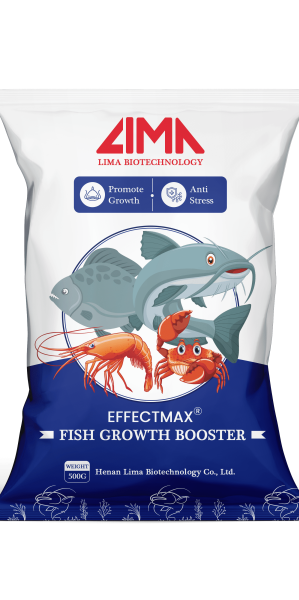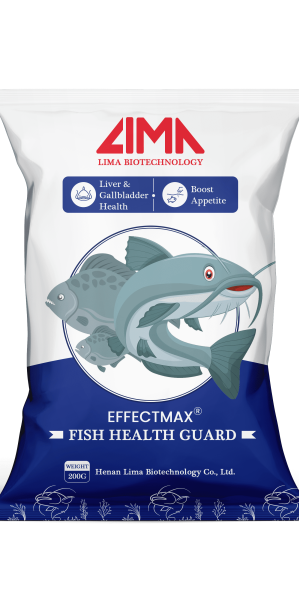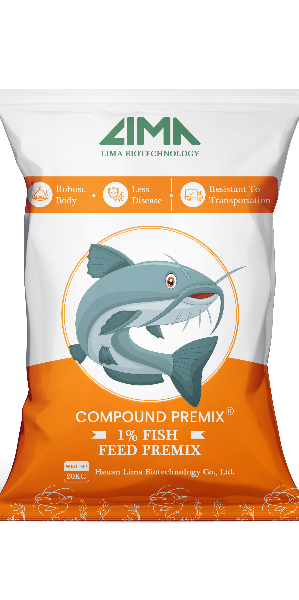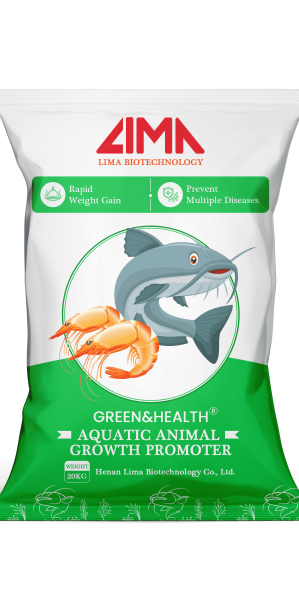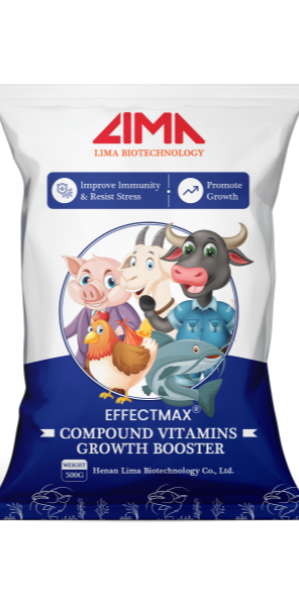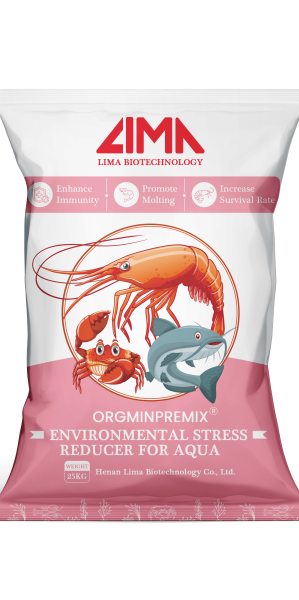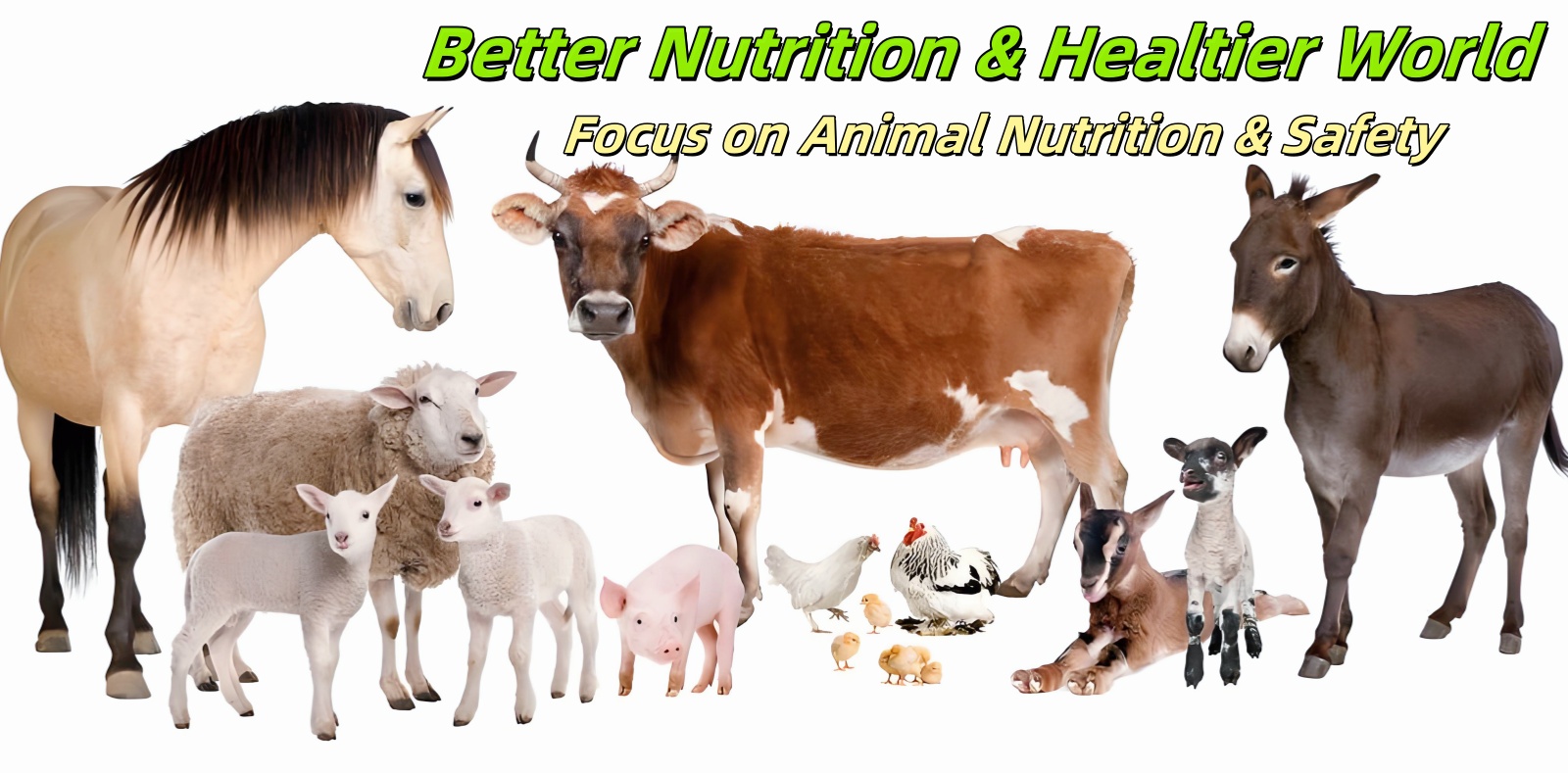As a team of fish feed additives specialists, we understand the importance that fish lovers place on the health of their fish. When your favorite fish is thin and weak and has a poor appetite, it not only affects the viewing experience, but may also be an early warning sign of nutritional imbalance and health problems. By using limaBiotech's premium fish feed supplement, it is the ideal solution to help your fish gain weight and come back to life.
Why Choose Lima Fish Growth Promoter?
Strengthen anti-stress ability: effectively enhance the ability of aquatic animals to cope with environmental stresses such as sudden changes in water temperature and fluctuations in water quality, reduce problems such as loss of appetite and growth retardation due to stress reactions, so that fish can maintain good condition even in complex environments.
Optimize intestinal health: It deeply regulates the micro-ecological balance of the intestinal tract, promotes the propagation of beneficial bacteria, significantly enhances the activity of digestive enzymes, accelerates the absorption of feed nutrients, helps fish eat well and digest well, and lays a solid foundation for healthy weight gain.
Enhance immunity and survival rate: rich in a variety of immune active ingredients, it can quickly activate the aquatic animal immune system, enhance the ability to resist disease, reduce the risk of disease, significantly increase the survival rate of aquaculture and reduce unnecessary losses.
Purify water quality, reduce mortality: by regulating the metabolism of aquatic animals and reducing harmful substances in excreta, it reduces the pressure of water pollution from the source, creates a healthy aquaculture water environment, and effectively reduces the deaths caused by water quality problems.
Protect liver and bile, take care of internal organs: provide nutritional support for the liver of aquatic animals, enhance the function of liver cells, promote bile secretion and excretion, effectively prevent fatty liver and other liver diseases, and protect the healthy functioning of internal organs of the fish body.
Improve feed utilization and reduce wastage: precisely optimize the nutritional structure of feed, significantly increase the conversion rate of protein, fat and other nutrients in feed, avoid wastage of nutrients, reduce the cost of aquaculture, and achieve high efficiency of aquaculture income.
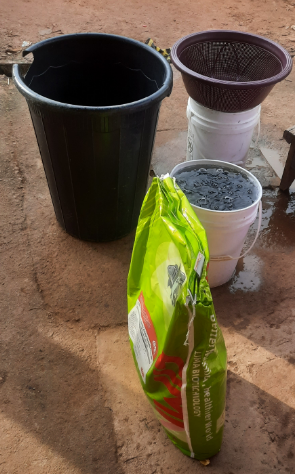
Sensible Dietary Choices
Choosing a high quality fish feed
The basis for fattening fish lies in the selection of high-quality fish feed. There is a wide variety of fish feeds available in the market. When selecting fish feeds, priority should be given to those with high protein content. Generally speaking, the protein content of ornamental fish feeds should be between 30% and 45%. For omnivorous fish such as goldfish and koi, mixed feeds rich in animal and vegetable proteins are an excellent choice. In addition, be sure to check the feed's production date, shelf life and manufacturer's credentials to avoid purchasing poor-quality products.
High-quality fish feeds contain not only the right amount of protein, but also essential vitamins and minerals. For example, feeds supplemented with vitamin A can enhance fish vision and immune function, while vitamin D is essential for calcium absorption and helps develop bones and scales. Some high-quality feeds even contain probiotics, which improve digestion and nutrient absorption, thereby promoting healthy weight gain.
Diverse food sources
In addition to conventional fish feeds, enriching the fish's diet is the key to meeting their diverse nutritional needs and promoting weight gain. Live bait is rich in nutrients and can stimulate the appetite of fish. For example, plentiful shrimps, which are rich in protein and unsaturated fatty acids, are the favorite of most ornamental fish (especially juveniles and small fish). Not only are they easy to digest, they also provide essential nutrients that are beneficial for growth and color enhancement.
Daphnia are also an excellent food source, rich in nutrients and suitable as a supplement for small to medium sized fish. For large carnivorous fish, fresh small fish and shrimps can be fed appropriately, but it is important to ensure that the food is fresh and hygienic - rotten or contaminated food can lead to serious health problems such as intestinal infections and parasites.
You might also consider adding other types of food to your fish's diet. For example, blanched spinach, lettuce, and other vegetables can provide fiber and specific vitamins for herbivorous and omnivorous fish. Some fish hobbyists even make their own fish food, customized to meet the specific nutritional needs of different fish species.
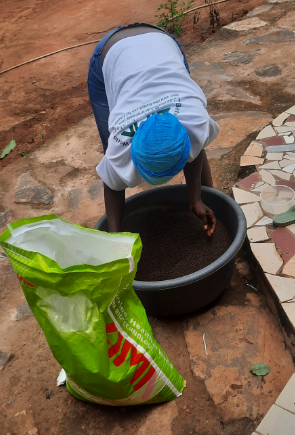
Adopt scientific feeding method
Control the amount of feeding: overfeeding will lead to deterioration of water quality, which in turn will cause various diseases in fish; while underfeeding will fail to achieve the weight gain target. It is usually recommended to follow the principle of “small amount, many times”, and the amount of food should be consumed by the fish within 3-5 minutes. If there is leftover food, it should be sucked out with a siphon to keep the water clean.
The size, species and age of the fish should be taken into consideration when determining the feeding amount. Large-bodied fish usually require more food than small-bodied fish, and juvenile fish in their growth period may require more frequent feeding. For example, juvenile goldfish may need to be fed 4-5 times a day (in small amounts), while adult goldfish may be fed 2-3 times a day.
Establish a regular feeding schedule: Like humans, fish can develop a regular feeding habit, which aids digestion and nutrient absorption. Feeding your fish at regular times (e.g. 8am, 12pm, 4pm) will help them form a reflex and improve their appetite. Regular feeding times also allow you to better observe your fish's eating habits and identify potential health problems early.
Optimize the aquaculture environment
Maintain appropriate water temperature
Different fish species require different water temperatures, but maintaining a suitable water temperature is the key to boosting their metabolism and appetite. For example, tropical fish usually require water temperatures ranging from 24°C to 28°C, while cold-water fish prefer water temperatures between 15°C and 22°C.
Depending on the type of fish you have, have a reliable heater or chiller. Check the water temperature regularly with an accurate thermometer to ensure that it is maintained within the right range. Sudden fluctuations in water temperature can cause stress reactions in fish, weakening the immune system and making them more susceptible to disease. For example, a sudden drop in water temperature may cause tropical fish to suffer from “cold stress”, which manifests itself as lethargy (lethargy: lethargy, sluggishness) and loss of appetite.
Provide sufficient space for survival
A crowded environment will restrict the movement of the fish and negatively affect their growth and development. Select an appropriately sized breeding pond area according to the size and number of fish. In general, small tropical fish can be kept at a density of 1-1.5 cm per liter of water; large fish like koi require at least 50-100 liters of water space each.
Disease prevention and management
Regular checking of fish health
In the course of daily fish keeping, you need to carefully observe your fish for signs of disease. Pay attention to the appearance of wounds, white spots, red spots and other abnormalities on the body surface, and pay attention to whether the swimming posture and appetite are normal. If the fish appears to be swimming unsteadily, losing balance or losing appetite, it may be a sign of illness.
As soon as you notice any abnormal symptoms, you should isolate the sick fish into a separate quarantine tank to avoid spreading the disease to healthy fish in the breeding area. In the quarantine tank, you can observe the condition of the sick fish more closely and administer targeted treatment.
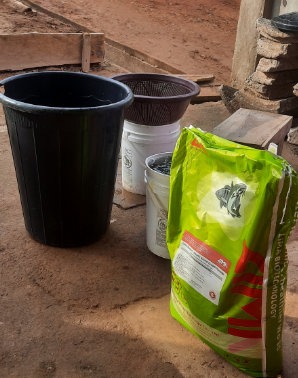
Implement disease prevention measures
Regular disinfection: Regularly disinfect aquaculture equipment such as ponds, filters and fish nets in the culture area. Disinfectants such as potassium permanganate solution or chlorine dioxide can effectively kill potential pathogens and parasites. When using disinfectants, it is important to follow the instructions strictly to ensure the safety of fish and equipment.
Enhance fish immunity: Add appropriate amounts of vitamin C, probiotics and other nutrients to fish feed. Vitamin C is a powerful antioxidant that strengthens the fish's immunity and helps them fight off diseases. Probiotics can improve the microflora in the fish's intestinal tract and promote digestion and nutrient absorption, which in turn strengthens the immune system and helps boost the fish's immunity.
Handling of special situations
Fattening of young fish
Juvenile fish are at a critical stage of growth and development and have higher nutritional requirements. In addition to providing high protein feeds, increase the feeding frequency to 3-4 times a day. Choose feeds with smaller particles that are easily digestible to ensure that the young fish can take in sufficient nutrients.
Juvenile feeds are available on the market and are formulated to meet the specific nutritional needs of juveniles, often with higher levels of essential fatty acids and amino acids, which are essential for their proper development. You can also feed your juvenile fish with freshly hatched plump shrimp, which is a high quality live bait that promotes rapid growth.
Recovering from illness to gain weight
Fish that have recovered from illness are usually weak and need to gradually regain their strength. After the fish have fully recovered, do not rush to feed large quantities, but feed small quantities of easy-to-digest food first, such as larvae of Toyon shrimp.
As a professional manufacturer of fish feed additives promoter, we always take professionalism as the cornerstone and solving the pain points of fish raising enthusiasts as our mission. Whether it is for rapid fattening of young fish or nutritional recovery of sick fish, our high quality fish growth booster have been rigorously tested and proven to meet the diverse nutritional needs of fish. By choosing Lima Biotech's fish feed additives, we can provide you with fish farming solutions and all-round technical support.














